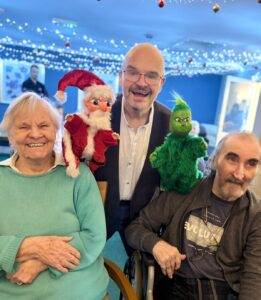Supporting contact between siblings separated in care system
The Sibling Time event, developed and delivered by children’s charity Coram, was piloted in Leicestershire last year as a response to the desire reported by children in care to stay in contact with siblings.
Coram have now published a report of that trial and here the charity’s’ Lucas Jones gives his take on the project.

A report from the Children’s Commissioner last year indicated that of the over 80,000 children in care, 37% have been separated from a sibling. Good quality contact between siblings who have been separated by the care system has numerous reported benefits such as supporting children’s sense of identity, right to self-determination and positive wellbeing.
Children and young people themselves also report a strong desire to connect with their siblings. However, despite the expressed wishes of many children for connection with their siblings and the reported benefits, the maintenance of sibling relationships for looked after children remains an overlooked area of social work practice.
To address this need, Coram’s Adoption Activity Days team developed the Sibling Time service, offering local authorities a fun, supportive, therapeutic and safe environment for children who are looked after or adopted to spend meaningful time with their siblings.
Sibling Time was piloted in Leicestershire in August 2023, with numerous children and families attending. The three-hour session was facilitated by a range of professionals including social workers and play specialists. The focus of the session was child-led free play with supported activities, as well as a group activity at the end of the session, bringing together children, parents, carers and professionals.
Parents and carers were also offered training around various topics such as supporting sibling contact and life story work. Coram’s Impact & Evaluation team conducted an evaluation of this pilot event using a variety of methods, including an observation of the event itself, as well as interviews and questionnaires with children/young people, parents/carers and professionals who attended.
Families were greeted in a friendly and enthusiastic manner by professionals helping to run the event. Various activities were laid out across the venue, which was a medium-sized communal hall with an outdoor space. Music was playing from speakers in the hall, and a range of refreshments was available for all attendees.
Findings
The findings of the research indicate that Sibling Time was implemented successfully and that the service shows significant signs of promise.
Children and young people thoroughly enjoyed the wide range of activities, which appeared to break down barriers between siblings who had not spent much time together prior to the event. Parents and carers were happy to let their children play in the venue while they attended a training session on ‘life story work’ in a separate room. Professionals engaged enthusiastically with children and young people, supporting their play but also taking a hands-off approach where appropriate to allow for sibling bonding.
In interviews, all participants emphasised the benefits they experienced from attending Sibling Time. All the children reported that they enjoyed the session, with five of them (84%) reporting that they enjoyed it a lot. Children and young people expressed their excitement about being able to see their siblings, sometimes for the first time in a very long time. Very positive interactions between the siblings were observed, even in the case of siblings with a large age disparity, including a toddler and teenager sibling group. Children reported in interviews that they would be keen to see their siblings again, hugging their siblings goodbye and leaving on a positive note.
Five of the six (84%) parents and carers who responded to questions stated that they had an excellent experience. They felt the event made future sibling connections more likely and expressed a desire for more Sibling Time events to be held. One parent reported: ‘For us it’s definitely a positive thing, and good will come of it’. The setting was seen as particularly important. The presence of social workers on-site helped to set boundaries and reassure parents. Some parents were concerned about the potential emotional fallout but felt that the preparation and carefully curated setting mitigated this.
Five of the seven professionals (71%) interviewed rated their experience of Sibling Time as excellent and thought that it was a great way of building or re-building family connections. The professionals on the day had not previously facilitated sibling contact and following the event they felt more confident to do so. Professionals echoed what parents had said about the importance of sibling contact for children’s identity and wellbeing, and noted the lack of existing facilitation or support. One social worker said: In an area where there isn’t a Coram, or the local authority don’t do that, it is literally up to the individual parents. If they, if they decide to meet up with the other adoptive family, brilliant. If they don’t, it’s not happening’.
Professionals also reported that the setting and activities were key to the success of the day. One professional said: ‘The venue is massively important to the feeling. If a child walks into the venue and instantly feels safe, then the sky’s the limit’. The preparation also worked well to manage potentially challenging family dynamics, with one professional noting: ‘everyone turned up knowing exactly what they were there for, ready for the day, really well prepared. And that’s the adults and the children’.
Next steps
To improve the service further, communication with parents and carers (especially about the availability of future Sibling Time events) could be refined. The event could also seek to engage a variety of different communities so that children and young people from all backgrounds can enjoy the benefits of Sibling Time. The evaluation concluded that Sibling Time shows significant signs of promise. More research into this intervention is required, but the evaluation team is hopeful that further research will demonstrate the potential for Sibling Time to help local authorities to support meaningful contact between siblings who gave been separated in the care system, offering them the opportunity to build strong relationships and emotional connections.
There will be an online information session on Sibling Time on 19 April from 10.00 – 11.30. To register, please contact: adoption.activitydays@coram.org.uk















